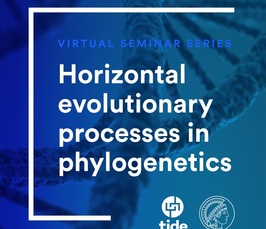Screening for recombination in large data sets: sensitivity, specificity, and applications to coronaviruses
Virtual seminar series: Horizontal evolutionary processes in phylogenetics
- Date: Feb 15, 2022
- Time: 04:00 PM - 05:00 PM (Local Time Germany)
- Speaker: Associate Professor Maciej Boni (Pennsylvania State University)
- Location: Online
- Host: TIDE, Denise Kühnert
- Contact: tide-seminars@shh.mpg.de

Abstract
Over the past 35 years many statistical and bioinformatic tools have been developed to detect recombination, gene conversion, or horizontal gene transfer in sequence data. Five separate statistical signals have been commonly used to detect recombinant sequences, and two of these - mosaic signals and phylogenetic incongruence signals - have emerged as the preferred methods for generating evidence for recombination. I will review the derivation of a non-parametric mosaic statistic called Delta_mn2 that forms the basis of the 3SEQ recombination detection algorithm. The sensitivity, specificity, and exact p-values reported by 3SEQ give it some advantages as a screening tool for recombination in large data sets. I will show how to derive clonal subsegments, or breakpoint-free regions (BFRs), using this approach. And I will show how we have used this screening approach inidentifying recombinants in sarbecoviruses and SARS-CoV-2.
Biography
Maciej
Boni‘s academic background is in mathematical epidemiology, mathematical
population genetics, individual-based disease transmission models, field
epidemiology, phylogenetics, and recombination. His main influenza focus is the
dynamics and evolution of influenza virus in the tropics, which he has
addressed with theoretical, field epidemiological, and informatic methods. His
main work in malaria focuses on optimal methods of distributing antimalarial
drugs to minimize the risks and slow the spread of drug resistance. From 2008
to 2016, Maciej’s research group was based in Ho Chi Minh City, at the Oxford
University Clinical Research Unit. In 2016, Maciej joined the Biology
Department and the Center for Infectious Disease Dynamics (CIDD) at
Pennsylvania State University.